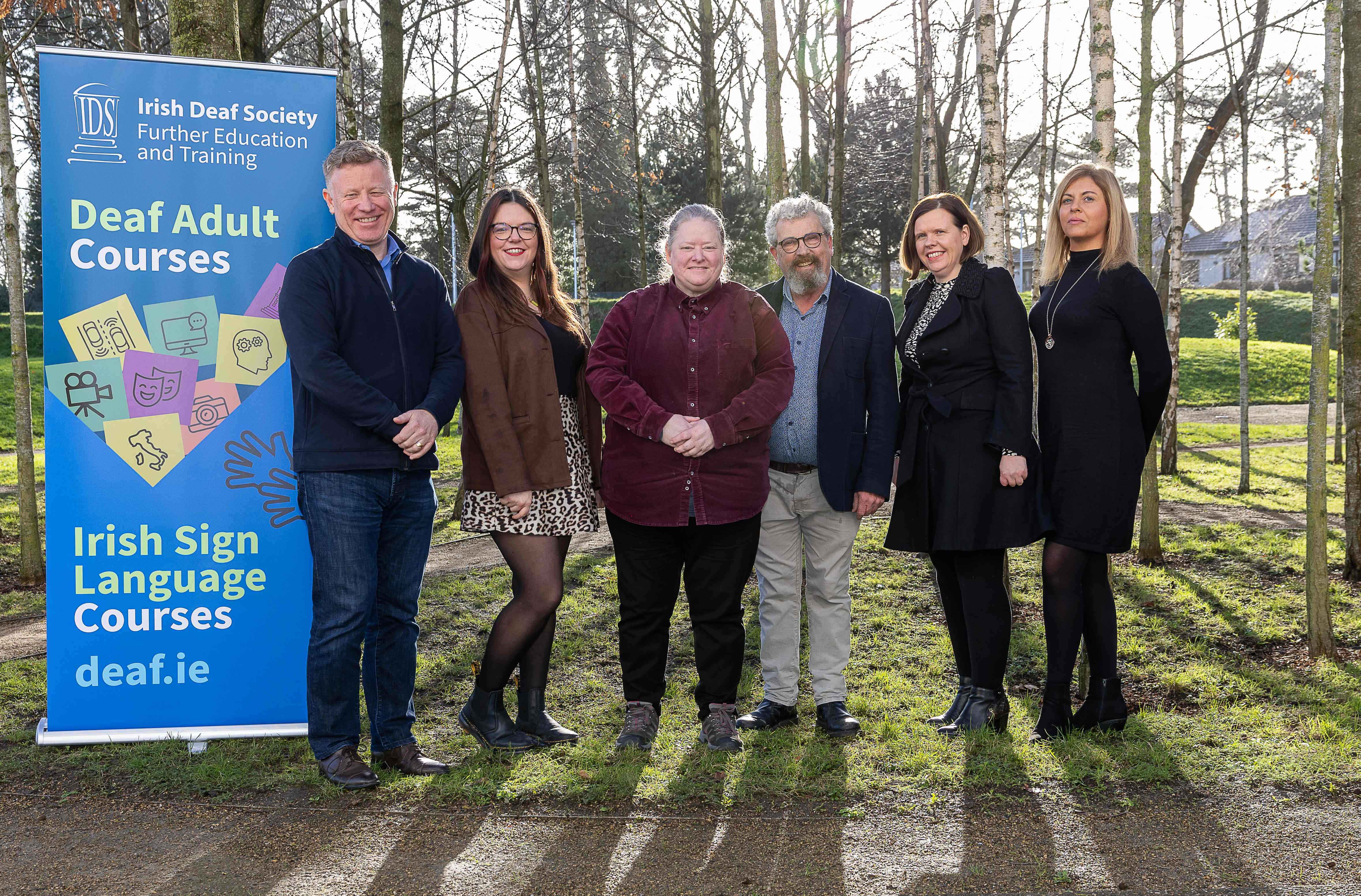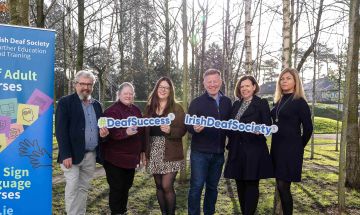SETU’s ‘Supporting Family Carers Across Ireland’ project, coordinated by the University’s School of Education and Lifelong Learning, in collaboration with the Irish Deaf Society, is delivering a level 6 Certificate in Advocacy to Deaf and Hard of Hearing (HoH) family carers.
The 12-week course forms part of the ongoing collaborative project between SETU and Family Carers Ireland (FCI), which is funded by the Higher Education Authority (HEA). It offers students the opportunity to learn more about leadership, communication, advocacy, rights and responsibilities and sociology.
Nicola McEntee, Project Co-ordinator, at SETU explained, “The provision of accredited programmes to family carers recognises the invaluable contribution they make to Irish society. Through the project, we provide Deaf and HoH family carers with a unique experience of higher education that is not often accessible to them. This collaborative initiative with the Irish Deaf society recognises additional challenges Deaf and HoH family carers experience in accessing higher education opportunities. Through delivering bespoke transformative tertiary education programmes in Irish Sign Language, such as the Level 6 Certificate in Advocacy, Deaf and HoH family carers can engage in relevant higher education opportunities contributing to equal access to educational opportunities for all.”

The objective of this course is to allow learners to develop a skill set that will allow them to advocate for their own needs or to advocate for others. Advocacy constitutes a critical element in protecting and progressing the rights of those people who have traditionally been marginalised from mainstream activities in Irish society.
Brian Cread, the Irish Deaf Society’s Further Education and Training Manager, shared his thoughts on the collaboration stating, “We are thrilled to see more bridges being built between the Deaf and HoH community, and the wider population through this exciting collaboration. In Ireland, many Deaf and HoH carers go unrecognised despite their remarkable dedication to caring for their families. These carers often face significant challenges, particularly in accessing information and services in Irish Sign Language. There are still misconceptions within the wider population about the abilities of Deaf and HoH people, which only increases the number of barriers facing these carers. The Certificate in Advocacy will empower Deaf and HoH carers, helping them raise awareness for their rights and build confidence in advocating for their own needs and the needs of their family. While this initiative alone cannot solve all challenges, it plants a vital seed for greater inclusion and equity.”
When speaking about the course, Caroline Poole, National Lead for Partnerships and Innovation at FCI said, “Family Carers Ireland welcome the opportunity to invite Deaf and HoH Family Carers to the Level 6 in Advocacy, delivered through our partnership with SETU. Family Carers are the backbone of our society, the invisible army who support people who are, for example, frail in old age or living with disabilities. Family Carers provide care in the home to people of all ages, from cradle to the grave. They provide care that is often very rewarding but can also lead to issues for the Carers themselves, such as isolation brought about by their caring role or increased poor health. Deaf and HoH Family Carers face even more challenges in their daily lives. We are delighted to support their journey into third level education through the IDS, and hope that this is the beginning of an exciting new partnership for them with SETU. No-one should have to care alone.”
The Irish Deaf Society (IDS) is the only national Deaf-led representative organisation of the Deaf, and it serves the interests and welfare of the Deaf community with a strong focus on Irish Sign Language, education, families and equal opportunities.
FCI is the national charity supporting the 500,000+ family carers across the country who care for loved ones such as children or adults with additional needs, physical or intellectual disabilities, frail older people, those with palliative care needs or those living with chronic illnesses, mental ill-health or addiction.
The course commenced in January 2025.
For more information on the programme, contact Project Coordinator, Nicola McEntee, at [email protected]


